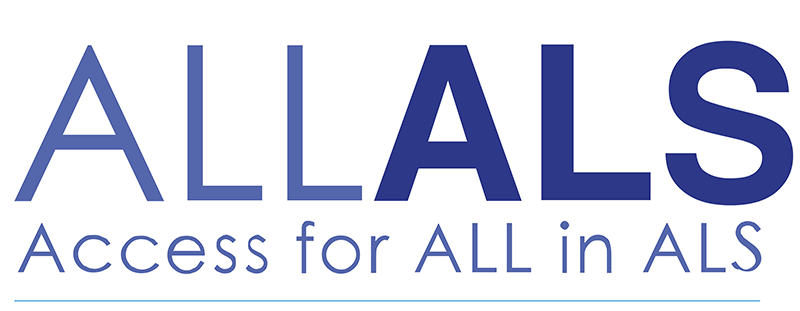For ALS Awareness Month, let’s explore some of the most frequently asked questions about ALL ALS:
1. What is the ALL ALS Consortium?
The ALL ALS Consortium is a nationwide clinical research initiative launched in the fall of 2023 and designed to advance ALS understandings and research.
ALL ALS grew from a partnership between NIH, biotech companies, ALS researchers and people living with ALS. It is funded through the NIH by the 2021 ACT for ALS law.
2. ALL ALS is an observational study. What does that mean, and why is it important?
An observational study means that no new treatment is being tested. These projects are critical to finding new treatments and advancing medicine. Observational research focuses on collecting information and samples, like blood, to understand the course of ALS, identify new drug targets, and discover biomarkers (tests that can help diagnose the disease).
3. What are biomarkers, and how do they help with research?
Biomarkers are measurable signs of a disease like blood tests. In ALS research, biomarkers help scientists understand the body’s response to the disease and can be useful for diagnosis, measuring ALS progression, and identifying treatment response.
4. Can you enroll in an observational study and an interventional trial at the same time?
Generally, people can participate in both observational studies, like ALL ALS, and interventional clinical trials at the same time. In fact, ALL ALS is designed specifically to allow people to participate in both ALL ALS and treatment trials at the same time. If you are currently enrolled or would like to enroll in an interventional trial and are interested in participating in an observational study, talk to the related study teams.
5. What is cerebrospinal fluid, and why is ALL ALS requesting participants donate it?
Cerebrospinal fluid (sometimes called “CSF” or just “spinal fluid”) surrounds the brain and spinal cord. Our bodies make more of it every day, and it is safe to collect CSF for analysis. This is frequently done in neurological care and research. The proteins and other substances contained within the CSF may provide the earliest signs of disease and often hold detailed information about neurological diseases.
The procedure to collect spinal fluid is called a spinal tap or lumbar puncture. This procedure is done in the clinic, and it is routine, safe, and well-tolerated. Though some people can develop a headache after the procedure, extensive work is done to minimize the risk. ALL ALS participants have the option to participate in a lumbar puncture.
6. Where are the ALL ALS data and samples stored, and how are they shared?
All study data is stored in secure databases and samples are stored in a central repository. Data and samples, which are separated from participants’ personal health information, like name and address, will be shared only with scientific researchers using legal agreements to protect confidentiality. Only information necessary for specific analyses is shared.
7. There are so many organizations involved in ALS research! How is ALL ALS collaborating with others?
The ALL ALS leadership team has built collaborations with as many organizations as possible, including the ALS Association, ALS United, I AM ALS, ALS Therapy Development Institute, NEALS, the ALS Hope Foundation, and the CDC. New collaborations are being forged every day!
8. Is ALL ALS collaborating with any other research studies?
ALL ALS is collaborating with other research studies, including Target ALS, the ALS Natural History Study, the CDC National ALS Registry, and ALL FTD. ALL ALS is committed to sharing data with all researchers to reduce redundancy and ensure maximum impact of all the data and samples collected.

